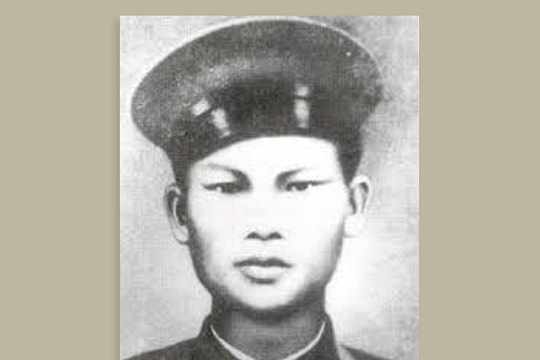Phung Chi Kien - Forever the qualities and character of a son of Nghe An
(Baonghean.vn) - Phung Chi Kien devoted his entire youth, sacrificing himself to carry out the noble mission entrusted to him by the Fatherland and the People.
For many people, the name Phung Chi Kien is still a mystery. This is understandable because "he died too early, his time of activities and work was mainly overseas; his portrait and stories along the revolutionary path have not been fully and authentically recorded" (Phung Chi Kien - The Mysteries Alongrevolutionary road, author and researcher of folk culture and literature Hoang Quang Uyen). In August 2012, I met Mr. Hoang Quang Uyen when he attended the critical theory writing camp of the Writers' Association in Cua Lo. He said that he had collected, researched, read memoirs and touching notes about comrade Phung Chi Kien; admired his talent, character, and noble sacrifice, and built a portrait of this talented general in the historical novel "Pac Bo Sun".
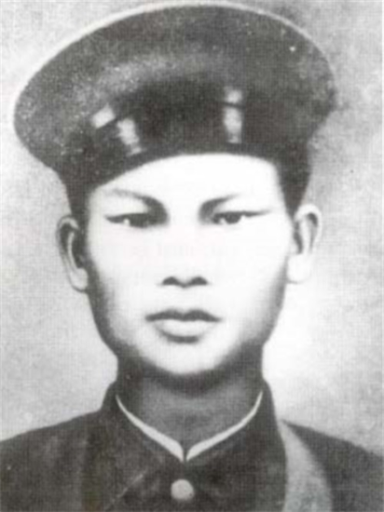 |
| Comrade Phung Chi Kien. Photo archive |
In August 2008, the Ministry of National Defense coordinated with Nghe An Provincial Party Committee to organize a workshop on “Comrade Phung Chi Kien, a staunch communist, an outstanding revolutionary leader, both politically and militarily.” In a letter sent to the workshop, General Vo Nguyen Giap wrote:“Comrade Phung Chi Kien is one of the senior leaders who has made great contributions to our Party and our Army, not only in terms of organization but also in terms of revolutionary line…”.
The respectful evaluations of the "Elder Brother" of the Vietnam People's Army have clarified the personality, the noble sacrifices and contributions of Comrade Phung Chi Kien for the Fatherland in the days when the revolutionary fire was shining, the will to fight for independence and freedom rose strongly. This requires today's history to study, recognize, and properly evaluate the merits of the first general in the pre-armed uprising period.
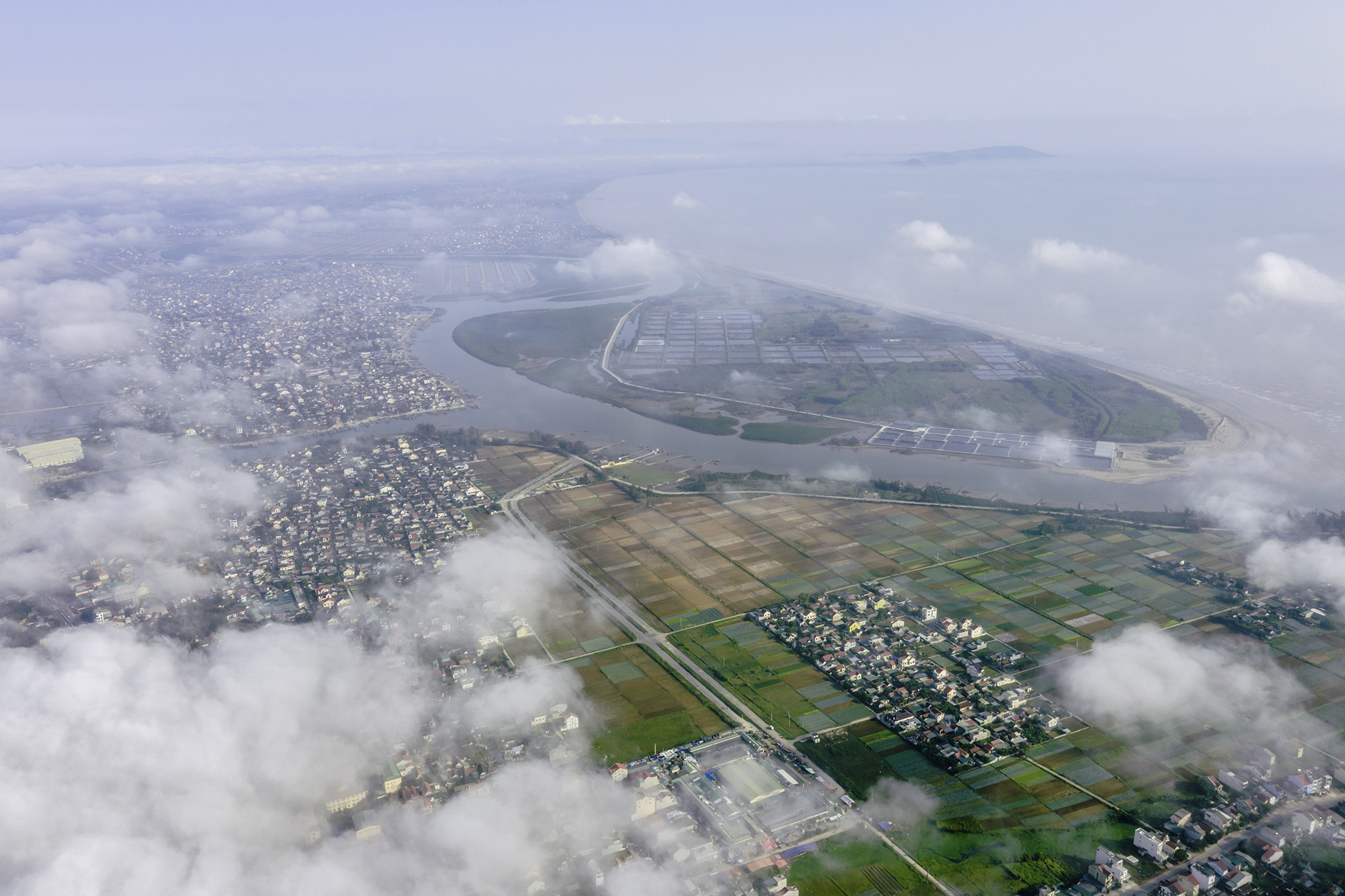 |
| A corner of Dien Chau homeland today. Photo: Ho Nhat Thanh |
Born and raised in a poor countryside with a rich tradition of patriotism and revolution in My Quan Thuong village, Van Phan commune, now Dien Yen commune, Dien Chau district (Nghe An), Comrade Phung Chi Kien's birth name was Nguyen Vi, born on May 18, 1901, his father was Nguyen Khoan. Seeing that his son was intelligent and eager to learn, Nguyen Khoan taught him the national language and Chinese characters. At the age of 14, he passed the Elementary School Certificate, mastering Chinese characters. At the age of 17, he joined the Vietnam Revolutionary Youth Association, secretly went to Guangzhou, China to attend a Political Training class organized and taught by leader Nguyen Ai Quoc.
Realizing that Nguyen Vi was a person with a passionate spirit for the revolution, intelligent, and with a military mindset, comrade Nguyen Ai Quoc chose him and a number of young people to study at the Whampoa Military School. Since then, like a roc riding the wind, Nguyen Vi participated in the Guangzhou uprising led by the Chinese Communist Party, became the Chief of the armed forces of the Hai Phong - Luc Pho Soviet (Guangdong), and broke many attacks by Chiang Kai-shek's army. Then, leader Nguyen Ai Quoc, representative of the Communist International, sent him to Moscow to study at the Oriental University.
After graduating, Phung Chi Kien returned to Hong Kong to join the Overseas Working Committee led by comrade Le Hong Phong. At the first National Congress of the Indochinese Communist Party held in Macau in March 1935, he was elected a member of the Standing Committee. In August 1936, he was sent to Saigon with comrade Ha Huy Tap to direct the revolutionary movement in the country. A year later, he returned to Hong Kong to lead the Party's Overseas Working Committee, published the Dong Thanh newspaper to propagate and orient the revolutionary struggle, and support the Chinese people against Japan. This was the time when he was close to Uncle Ho, and went with him to Yunnan to contact revolutionary mass bases and survey the way back to the Fatherland.
During this time, Phung Chi Kien was also assigned by Uncle Ho to work with comrades Pham Van Dong and Vo Nguyen Giap to compile lectures and directly teach 40 cadres sent to Cao Bang to build pilot Viet Minh organizations in 3 regions: Ha Quang, Hoa An and Nguyen Binh. Here, he applied the knowledge he learned and experienced abroad to establish self-defense combat teams, participate in organizing training courses, and train cadres for various places.
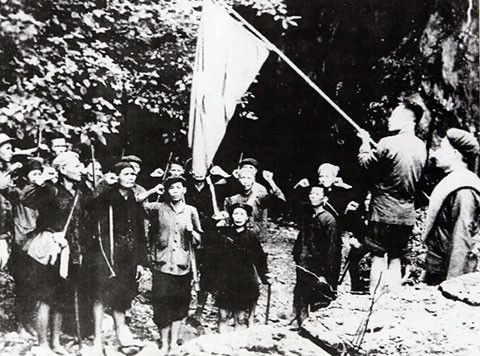 |
| Guerrillas participating in the Bac Son uprising, September 1940. Photo archive |
At the 8th Central Party Conference (May 1941) in Khuoi Nam, Pac Bo, comrade Phung Chi Kien continued to be elected to the Central Executive Committee, in charge of military affairs, and was sent to Bac Son base to command the National Salvation Army, building armed forces to prepare for the General Uprising.
Sending comrade Phung Chi Kien to Bac Son was to carry out an important shift in the Party's revolutionary line by placing the issue of national liberation first, clearly defining two urgent and important tasks: establishing the "Vietnam Independence League" (abbreviated as Viet Minh) and building the people's armed forces. This task was placed on comrade's shoulders because, as Uncle Ho said before sending him off: "Leaving Phung Chi Kien at this time was something Uncle Ho did not want, but the revolutionary mission needed the contribution of an excellent military officer trained by the Party for a long time." (Historical novel "Pac Bo Sun" - Hoang Quang Uyen).
And, on this land of love and gratitude on the border, he sacrificed his life at the age of 40, with his talent at its peak, his strength still abundant, his knowledge and experience in command and leadership fully equipped... He was proposed by Uncle Ho to the Government Council to sign Decree No. 89/SL dated September 23, 1947 to posthumously confer the rank of general.
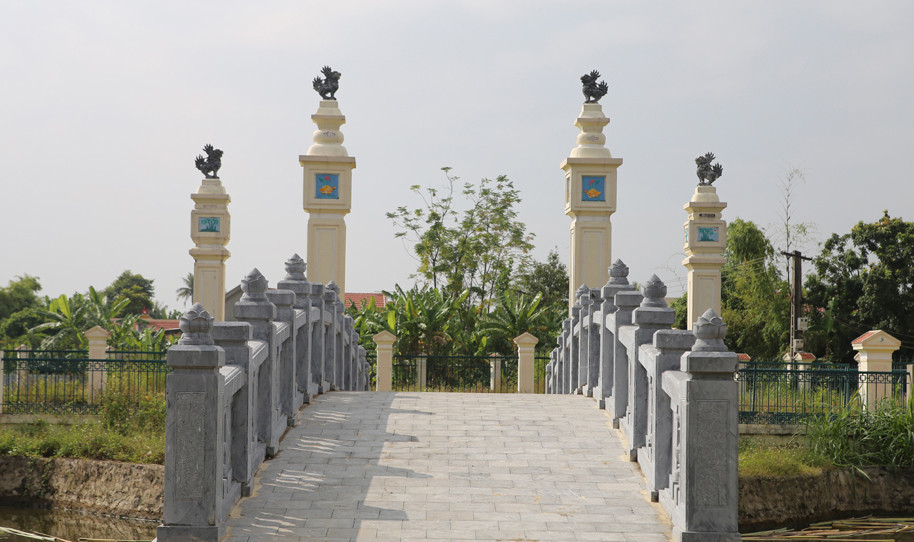 |
| A section of the Memorial Site of Comrade Phung Chi Kien in Dien Chau district. Photo: Tien Hung |
Phung Chi Kien devoted his entire youth, sacrificing himself to carry out the noble mission entrusted to him by the Fatherland and the People. As an excellent commander of the powerful National Salvation Army, to preserve his forces and the lives of the people around the Bac Son base, he decided to break the siege and withdraw his troops to the border when the enemy mobilized more than 4,000 soldiers to surround and destroy the base, wiping out all the seeds of weapons, a threat to them in the future. On the way to withdraw, his wing was discovered by the enemy, surrounded on all sides, he decided to go behind to block the rear, drawing firepower towards himself, fighting until the last bullet. Only he and comrade Political Commissar Luong Van Chi were injured, fell into the enemy's hands, and were later murdered by them, while the other soldiers retreated safely, including names that became outstanding generals, officers, and leaders such as: Chu Van Tan, Dang Van Cap, Hoang Van Thai... Later, Phung Chi Kien was recognized by the State as a martyr, and in his hometown Dien Chau, a Memorial Project named after Phung Chi Kien was also established.
Phung Chi Kien is no longer with us, but his bravery, intelligence, and strategic talent as a general of the Vietnam People's Army are still a shining example and a great lesson for today's and future generations. He has contributed to making his homeland Nghe An - one of the revolutionary cradles of the whole country - more glorious./.

